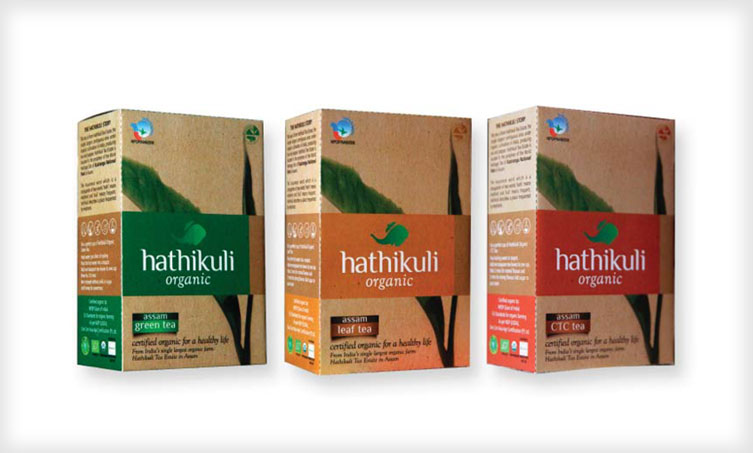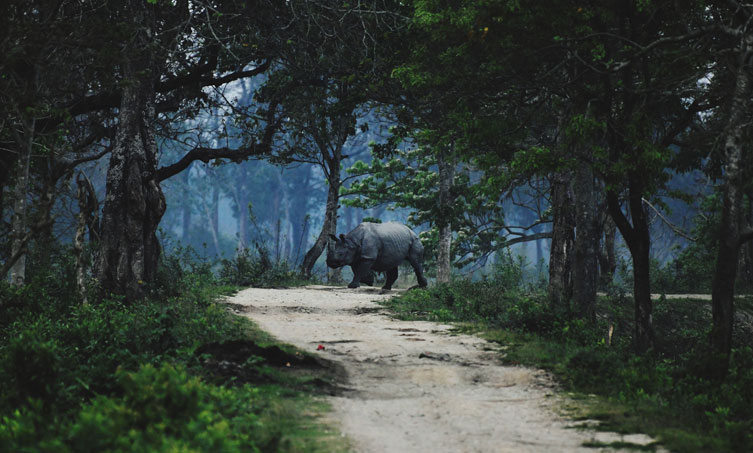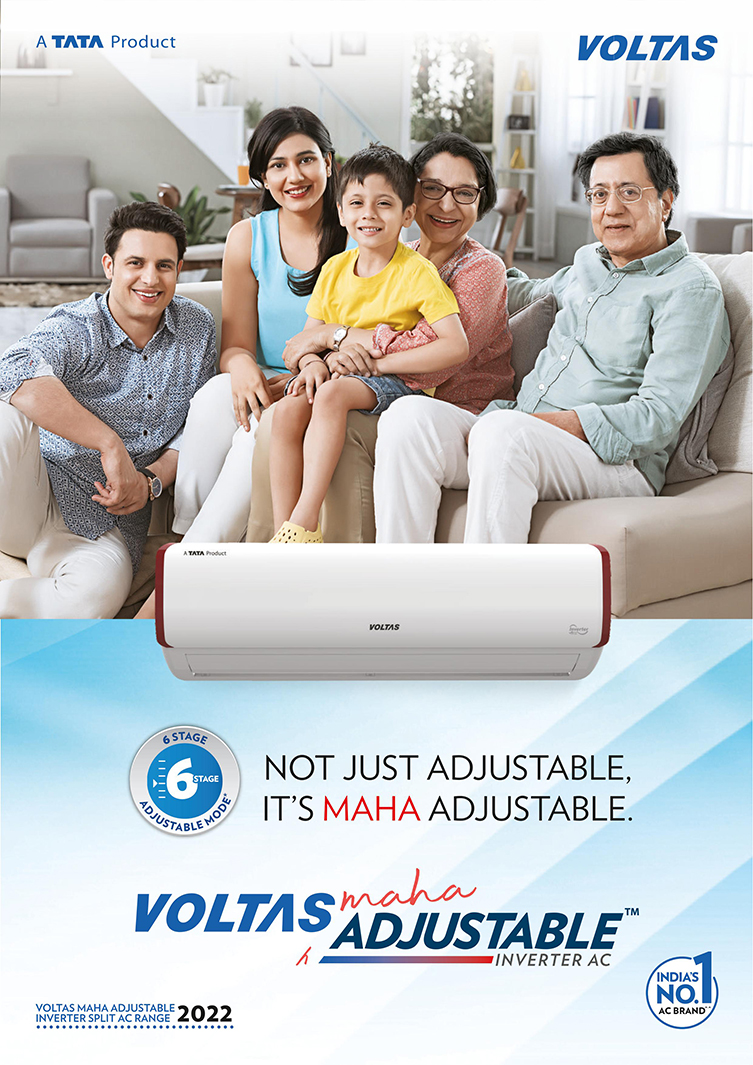December 2022 | 1,592 words | 7-minute read
The United Nations Environment Programme (UNEP) defines sustainable consumption as the use of material products, energy and immaterial services in such a way that it minimises the impact on the environment, so that human needs can be met not only in the present but also for future generations. The need to rationalise the impact of consumption and create sustainable production, distribution and usage of products and services is spelt out as the 12th Sustainable Development Goal (SDG) of the UNEP.
Tata companies in the consumer-facing businesses — among them Tata Consumer Products (TCPL), Voltas and Titan Company — have long been cognizant of the challenges facing the planet and continue to address their direct and indirect impact. Some of the measures include participation in a circular economy, product innovation and creation of business models where environmental stewardship and community participation are core. Common to all these measures is the recognition that there is no alternative but to rationalise the impact of consumption as spelt out in the 12th SDG.
‘For Better’
As a company with a range of products in food and beverages, going circular is baked into every aspect of TCPL’s business, right from sourcing to post-consumption. The brand tagline ‘For Better’ sums it up, emphasising its pursuit of a better future for all its stakeholders and the planet.
The focus can be seen from the attention it pays to ensure minimal impact at source, especially in ecologically sensitive regions. For example, the Hathikuli tea estate owned by its associate, Amalgamated Plantations, in Assam is organic; not only does this ensure a superior product but also that rhinos in the neighbouring Kaziranga continue to thrive.

The company works with its worldwide suppliers to ensure that its standards in responsible sourcing are met. It is a founding member of Ethical Tea Partnership, which ensures fair and sustainable sourcing of tea and has partnered with Rainforest Alliance; most of the international Tetley brand is 100% Rainforest Alliance Certified. In India, it is a founder-member of TrustTea, an industry-led sustainability code and verification system for the tea sector in India. For its Tata Sampann products, it works with its suppliers to raise awareness and skills of small farmers and farm workers to ensure organic, water-preserving, and sustainable farming methods.
At the processing and packaging stage, TCPL’s strategies include initiatives towards sustainable sourcing, natural resource management, circular economy and community development.
“We continue to evangelise sustainability through our value systems, corporate culture and entrepreneurial spirit.” - Sunil D’Souza, CEO and MD, TCPL
To complete the circle, the company works to ensure that packaging is sustainable and aims to reduce, optimise, and switch to sustainable packaging. [See story on sustainable packaging]

“We continue to evangelise sustainability through our value systems, corporate culture and entrepreneurial spirit,” says Mr Sunil D’Souza, CEO and MD, TCPL, underlining the fact that the circular economy cannot be achieved alone.
Cooling without Warming
Climate change is leading to a warmer world, increasing the demand for cooling. A 2018 report predicts that the stock of room air conditioners (RACs) will grow fivefold by 2050. The Inter-governmental Panel for Climate Change (IPCC) estimates that by the same year, the world will see a 1.5° rise in temperatures. Heat can be sapping and even deadly, and as a tropical country, India faces the twin challenge of keeping its population comfortable and productive without warming the climate.
Voltas, India’s leading provider of air conditioning, is conscious of this paradox. Says Pradeep Bakshi, CEO and MD, Voltas, “As the global temperature rises, the world and we will have to address a key risk and opportunity by inventing and investing in sustainable cooling products.”
“Being a Tata enterprise, sustainability is embedded in the way we conduct our business, which also enables us to create long-term value for our stakeholders.” - Pradeep Bakshi, CEO and MD, Voltas
Central to Voltas’ efforts is the move to use an environment-friendly gas (R-32) that results in lower Ozone Depletion Potential (ODP) and Global Warming Potential (GWP) than existing refrigerants, fluids that are used in the refrigeration cycle of cooling products. This move has enabled all its product lines in the cooling products business to lower emissions.
All of Voltas’ cooling products have Bureau of Energy Efficiency (BEE) star labelling that enables consumers to make energy-informed product choices. The company also invests considerably in consumer-centric innovations that potentially have a large-scale collective impact on energy consumption. For example, the ‘Voltas Maha Adjustable Inverter AC’ has a six-stage adjustable mode that defines predefined lower and higher cooling capacity that controls inverter compressor’s running frequencies. This innovation has the potential to save 15% more energy than a normal inverter air conditioner.
The introduction of a compact and efficient 3-star invertor and a 2-star fixed speed AC model has similar energy-saving potential, in addition to reducing material consumption. More importantly, it offers consumers a choice of a smaller unit and optimises energy consumption in accordance with their cooling needs.

For its chest freezers and chest coolers line, Voltas switched to R-290 refrigerant from R-314A. This shift requires lesser quantities of the fluid and has a lesser GWP when compared to others. The attention to detail is also seen in the minute changes that Voltas made to its 2022 product range of outdoor unit ACs that cool large spaces. Instead of 7mm diameter tubes, the company used high-efficiency grooved tubes of 5mm. This not only reduced the copper metal used by 15%, but also the consumption of energy and the quantity of refrigerant gas. The Voltas Beko Recycled Tub washing machine follows a similar philosophy — by using tonnes of plastic waste, thread and discarded fishnet, it helps reduce plastic pollution, especially in the world’s landfills and oceans.
“As the global temperature rises, the world and we will have to address a key risk and opportunity by inventing and investing in sustainable cooling products.” - Pradeep Bakshi
Towards ensuring that the demand for consumption is met with the least impact on climate change, Voltas has set itself in an ambitious path, as Mr Bakshi elucidates: “Being a Tata enterprise, sustainability is embedded in the way we conduct our business, which also enables us to create long-term value for our stakeholders.”
Towards a Conscious Lifestyle
As the fifth largest integrated watch maker in the world and one of India’s largest manufacturers and retailers of lifestyle and luxury products like jewellery, watches and fragrance, Titan Company believes that sustainability is the only way forward. As stated by C K Venkatraman, CEO and MD, Titan, “The only way forward is to live sustainably, make environmentally conscious choices, use eco-friendly products and conduct an environmentally conscious lifestyle.”
The company has institutionalised a comprehensive sustainability policy that aims to constantly reduce its overall impact on the environment by creating more sustainable practices in raw material acquisition, manufacturing, and recycling; pursuing environmental management systems at factory-level; using LED lighting systems and increasing recyclable packaging at its factories and retail outlets.
It has also led the way in harnessing renewable energy and replenishing its usage of water resources. “More than 75% of our energy comes from renewable sources like wind and solar. Through conservation and recycling, Titan has saved millions of litres of fresh water in our manufacturing units,” says Mr Venkatraman, highlighting one of the many elements that go into making truly sustainable products.

Titan today has a range of exciting products that are produced out of biodegradable and recyclable material.
FastTrack NatureWear is a range of frames that are made from a widely available oilseed — Castor. The product, fully developed and manufactured at Titan, is a result of sustained effort to source bio based material for a widely used product that is otherwise manufactured with petrochemicals. This material helps in reducing the CO2/KG by 40% as compared to regular TR90 plastic widely used for frames.
Researchers at Titan experimented with various colouring and coating substances, and moulding properties to ensure that the frames are aesthetic, durable and comfortable — and at the same time, bio based. An advantage over conventional material is NatureWear’s high elasticity, which makes it more comfortable to use. Castor seed based material is 20% lighter as compared to TR90 Material.
“The only way forward is to live sustainably, make environmentally conscious choices, use eco-friendly products and conduct an environmentally conscious lifestyle.” - C K Venkataraman, CEO and MD, Titan
The ReSpec collection by Titan follows the same principle of minimal impact on the environment, and maximising user comfort, durability and style. The difference though, is the material with which this range of eye frames are manufactured. The material used for ReSpec comes from surplus raw material generated from other eyewear products. Leftover cellulose acetate is converted to granules that are used to produce these frames. A growing proportion of the material from ReSpec also comes from used eyewear, which is sourced from Titan outlets in some select locations.
Titan’s jewellery division, Tanishq, ensures that circular economy principles are in place for its products as well. 100% of the gold used for the Mia brand is recycled gold. The division actively markets its gold exchange scheme to ensure that it can source used metal from customers to maximise its usage of recycled gold, entrenching a cycle that delivers a high level of satisfaction to customers, yet minimising theirs, as well as the company’s usage of the earth’s precious resources.
Sustainability and Growth
Much of these efforts are a continuation of what the Founder of the Tata group, Jamsetji Tata, set in motion at the very beginning. While building Jamshedpur, he asked his sons to ensure greenery and open spaces in the town. His desire to provide clean energy to the industries of Mumbai led to the harnessing of hydel power. Later, JRD Tata followed in his path, ensuring biodiversity and harmony with nature; accelerated and institutionalised further with formalised efforts in sustainable business practices in the early 2000s.
It is with this spirit that many Tata companies are accelerating their efforts to mitigate the impact of climate change with Aalingana, the group-wide sustainability roadmap.
Certifications
- Tetley by Tata Consumer Products is 100% Rainforest Alliance Certified
Leading Industry Bodies for Sustainability
- TCPL is a founding member of Ethical Tea Partnership and TrustTea
Awards
- Voltas won the National Conservation Award instituted by Bureau of Energy Efficiency for the 5th time in 2021.
- Haroon Bijli









